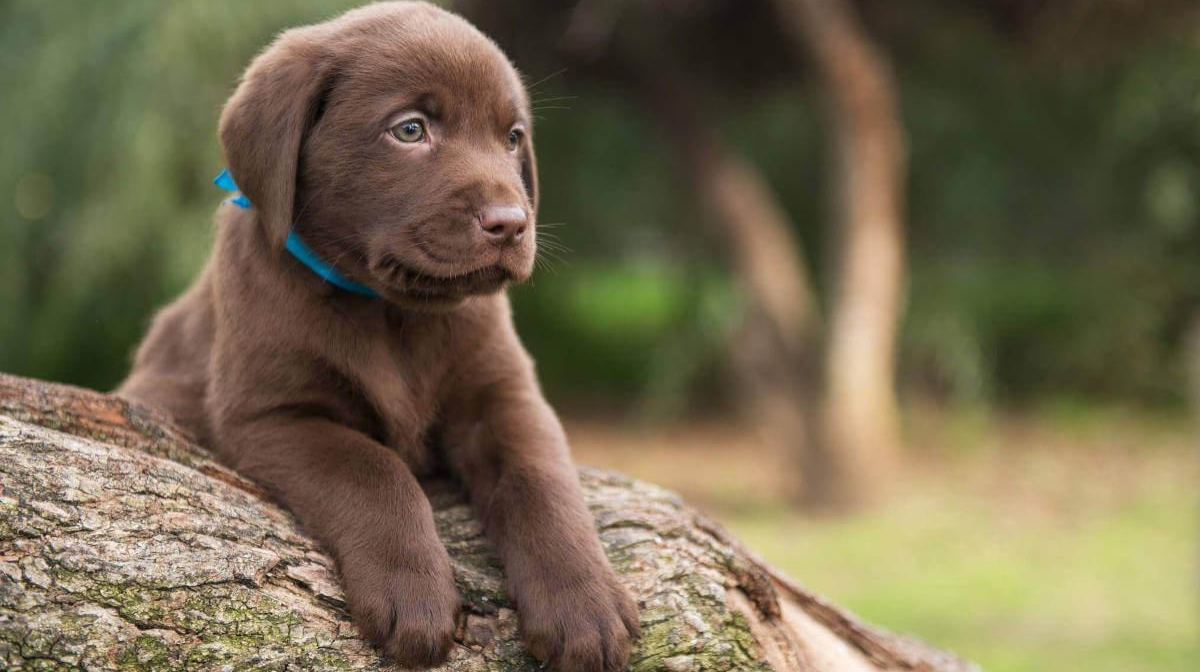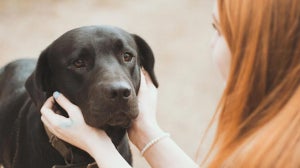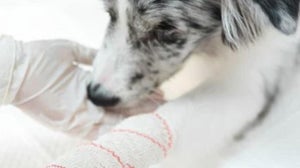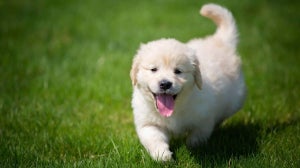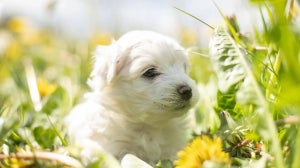
When it comes to young animals, a puppy’s playful, inquisitive, energetic nature is part of what makes them so loveable, and why they make such fun pets. However, young puppies often bite or nip, which if left undisciplined, can cause problems as an adult. In this article, James Wellbeloved looks at how to stop your puppy from biting…
WHY PUPPIES BITE
When puppies are born, one of the ways they communicate or play with their littermates is by biting, nipping, or mouthing. They also learn to explore their surroundings from an early age using their mouth and teeth to discover what different objects are. If you’ve been around a litter of puppies before, you’ll be familiar with the sharp yelp of pain from a puppy whose brother or sister has bitten too hard! When this occurs, you may have observed that playtime usually stops. This is called bite inhibition and involves the puppies learning how hard is too hard. Puppies must be taught the same thing with humans – if they bite too hard, playtime ends immediately.
PUPPIES AND PLAY BITING
You may have noticed that when you stroke or pat a puppy, they may try to bite or chew on your hands. Puppies have sharp little teeth, and although gentle nibbles may not hurt you, they could hurt children or other people who meet your puppy. Inappropriate biting behaviour must be discouraged as soon as possible so that your pup isn’t still biting when they have bigger teeth and stronger jaws. As mentioned earlier, biting behaviour is very rewarding for puppies. As such, you should provide your puppy with alternative items to chew other than your body! If you are playing with your puppy and they bite your hands, offer them a toy to chew instead. If you don’t have a suitable toy to hand, stop playing and remove yourself from the game for a few minutes before returning to play; this way, your puppy should learn that biting a person stops the fun!
REPLACEMENTS FOR BITING
To avoid unwanted puppy bites, you should try offering toys that they can bite instead. Make sure that these are proper dog toys with no sharp parts, or parts that could break off and be swallowed, and make sure that they are suitable for the age and size of your puppy. You could also use treats and praise to reward your puppy for good behaviour during play. Puppies are easily attracted to fingers and toes, so when playing try not to make your hands the enticing part of the play by putting them too near their face. You should also try to avoid reacting if they do manage to bite a finger or a toe, as a startled reaction can be even more entertaining for your puppy, causing them to repeat the behaviour. Another way to get your puppy to stop biting you is to introduce them to other dogs that they can play with instead. Socialising your puppy and encouraging them to play with other dogs is great for their development and will generally make for a friendlier, happier pet. It’s a good idea to socialise your puppy with a variety of dogs of different ages and sizes; smaller dogs may be more sensitive to being bitten, and well-behaved adult dogs are likely to tell your puppy off when they bite too much!
PUPPY TEETHING
A teething puppy is likely to bite or chew more to cope with the pain. Puppies usually start teething at around four months of age. To avoid unsuitable items being chewed, such as wires, shoes or furniture, giving your teething puppy toys that are safe to chew may help, especially if you are able to put them in the fridge to cool down first. Pink gums and healthy teeth are signs of a healthy puppy. If you are concerned about your puppy’s teeth or mouth, take them to see a vet. Above all, you should stay calm and be patient with your puppy. Biting is natural behaviour for them, so it may take a while before they learn completely. Never punish or scare your pup for biting, as this may actually make them more likely to bite. If you are struggling to get your puppy to stop biting, you could sign up for some training classes, or ask a vet for their advice.

